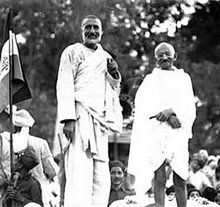The aftermath of any mass shooting such as the one that occurred in Aurora, Colorado, on July 20, 2012, always creates anxiety in the gun lobby. But, fortunately for them, these tragedies occur with such regularity that they have become quite practiced at taking the "high moral ground" and deflecting any criticism of their cherished ideals. You see, at bottom, it really is all about principle. The occasional slaughter of innocents is simply the price one has to pay in order to be true to one's higher vision.
As a result, whenever these events (quite naturally) raise questions in the minds of American citizens about the meaning of the Second Amendment or the wisdom of making assault rifles readily available to American consumers, the position (pose) of weaponry apologists is quite consistent: "Have you no decency? This is not the time to engage in political debate; this is a time to mourn the tragedy..." We sometimes forget that weapons manufacturers, like all corporations (since the Supreme Court's decision in the Citizens United case), are people too. In fact, they are sensitive, poetic types, filled with love and overflowing with compassion for their fellow human beings.
The effectiveness of this strategy is obvious to anyone paying attention: shamed into silence, inquirers and critics alike await a more "appropriate" moment in which to raise their questions and concerns.
But, conveniently for the lobby, that moment is deferred into a future when the public's attentions have been re-focused on whatever the media circus has portrayed as the "next big thing," and the prevailing political discourse carries on with its usual irrelevancies. In this way, a serious national conversation about this most urgent of topics and the delusions of the American electorate (about being in possession not only of a democracy but the greatest democracy the world has ever seen) are efficiently and effectively managed.
Deflect. Defer. Delude. These are the "three D's" of American political discourse in the opening decades of the 21st century. The Ghaffar Khan Society responds to these "three D's" with its own "three R's": Resist. Refuse. Renounce.
The prevailing degree of what we may term "political manipulation through discourse management" reminds us of our Shaykh, Leo Tolstoy, and his novel Resurrection.
There is an episode in that novel that treats of the political radicalization of an individual by the name of Kryltzoff. Prior to his radicalization, Kryltzoff was arrested and jailed for having made a monetary contribution to a political cause concerning which he, personally, was indifferent. While incarcerated, he becomes acquainted with his fellow inmates, including "a Pole, Lozinsky" and a seventeen year old boy, Rozovsky, a Jew. These two were taken off one morning for their trial and when they returned to their cells later in the day they revealed that they had been condemned to death. Tolstoy wrote:
No one had expected it. Their case was so unimportant; they only tried to get away from the convoy, and had not even wounded any one. And then it was so unnatural to execute such a child as Rozovsky. And we in prison all came to the conclusion that it was only done to frighten them, and would not be confirmed. At first we were excited, and then we comforted ourselves, and life went on as before [emphasis added].
This passage speaks so clearly to the present state of American politics: discourse management deceives only those who desire to be deceived. Tolstoy's insight here echoes perfectly Etienne de la Boetie's argument in The Politics of Obedience: The Discourse of Voluntary Servitude. The American electorate's inability to question the status quo is self-inflicted. We are not a free people because the price of liberty is eternal vigilance (a maxim attributed to Thomas Jefferson) and, long ago, we grew tired of keeping watch.
And, yes, if you have not read Resurrection, it is important that you learn that both Lozinsky and Rozovsky were subsequently executed by hanging.
Kryltzoff, astonishingly, took note and thus came about his political radicalization.
Would that the American electorate could break the cycle of excitement, self-comforting, and status quo.
It is a fond hope, but a hope cherished by the GKS nonetheless.





No comments:
Post a Comment